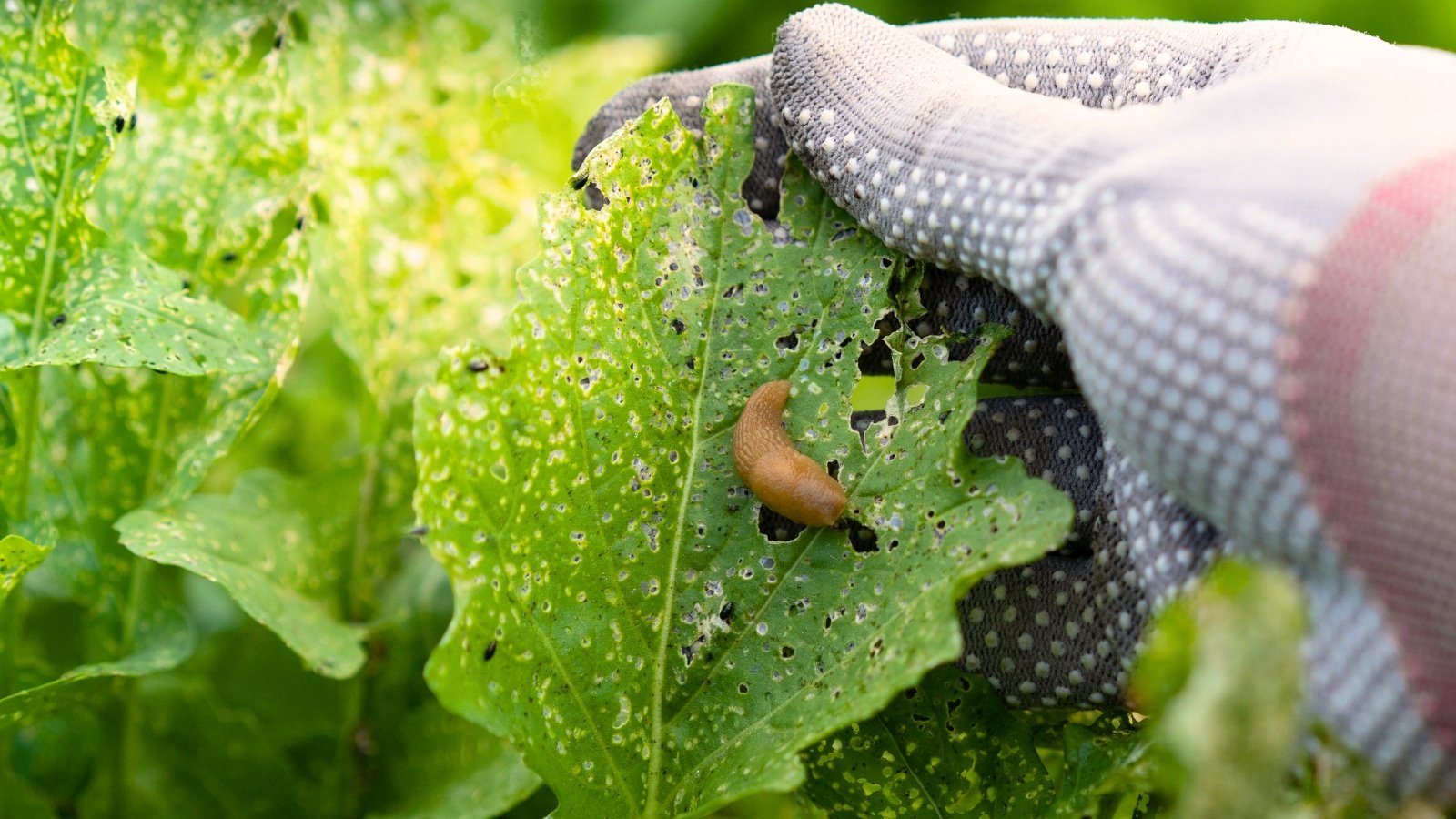
7 Errors to Avoid When Stopping Yard Pests
[ad_1]
Aphids, beetles, cutworms, whiteflies, hornworms—pests are one of many essential overwhelming elements of gardening. There are billions of bugs flying and crawling spherical in nature, nonetheless a couple of of them seem determined to destroy all of our onerous work. Whereas pests are a pure part of the ecosystem, there are quite a few strategies to battle them with out harming your vegetation, soil, pollinators, or family’s nicely being.
Many individuals purchased into gardening so we’d develop our private pure, flavorful meals. Clearly, spraying chemical pesticides compromises in all probability essentially the most foundational ethics of pure rising. Moreover, pesticides are actually very ineffective over the prolonged haul. Within the occasion you’re looking out for sustainable, long-term pest administration that doesn’t hurt your nicely being or your pockets, that’s the article for you.
Let’s dig into 7 principal errors to avoid when combating pests and what to do instead.
What are the Largest Pest Administration Errors?
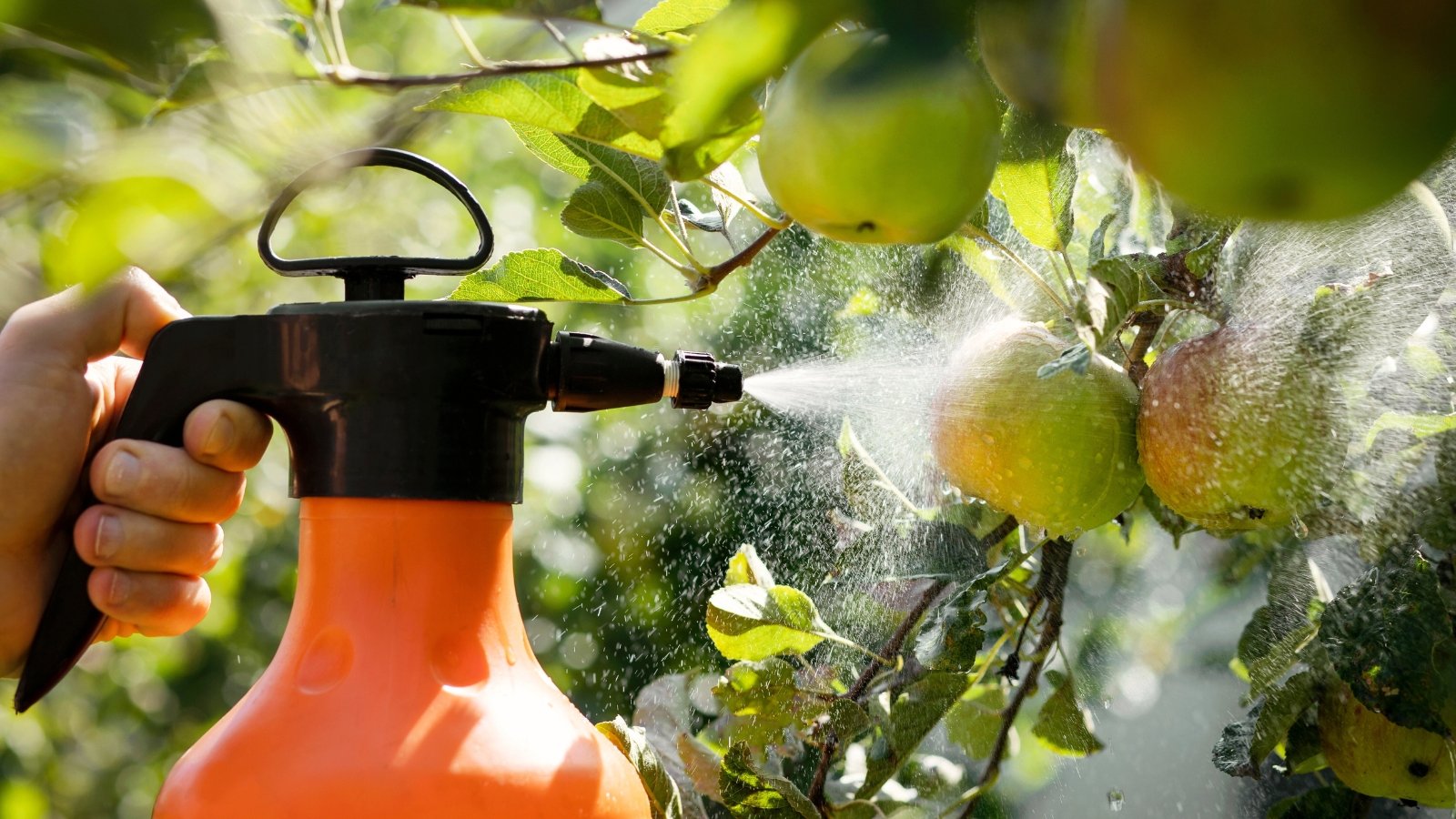

Sustainable pest administration is rooted in prevention. The most important mistake beginner growers make is using a war-like, reactionary technique to pest administration. Gardening simply is not a battle on bugs! It’s really about creating stability to mimic nature, lastly yielding elevated top quality meals with a lot much less outbreaks.
Within the occasion you wait until your vegetation are infested with bugs, you then definately spray harsh broad-spectrum pesticides, the whole ecology of the yard is disrupted. These errors damage pollinators, useful predatory bugs, and human nicely being. An industrialized technique to pest administration really can create a harmful loop of additional pest outbreaks and chemical dependency.
Your panorama simply is not a sterile, closed-loop system. It is an ecosystem! Nature has its private “checks and balances” to handle insect populations. We must always put ecological controls and clever administration strategies in place to take care of pests under administration for the prolonged haul.
7 Pest Administration Errors to Avoid
Some errors, like poor soil or seed germination factors, are fairly quick and easy to therapy. In distinction, pest administration errors can damage your yard for the whole season or longer.
Pests reproduce rapidly. A single aphid can produce as a lot as 80 infants per week and each female is born already pregnant! Infestations can improve just about in a single day, nonetheless broad-spectrum sprays may make points even worse after they knock out pure predators!
The good news is decrease than 1% of all bugs are considered pests. Most bugs you’ll encounter are useful or neutrally harmless. The issue is to accurately decide, deal with, and stability the populations of bugs to forestall damage to your crops and ornamentals.
Avoid these errors to create a sustainable pest administration plan!
Mistake: Being Reactive (Reasonably Than Proactive)
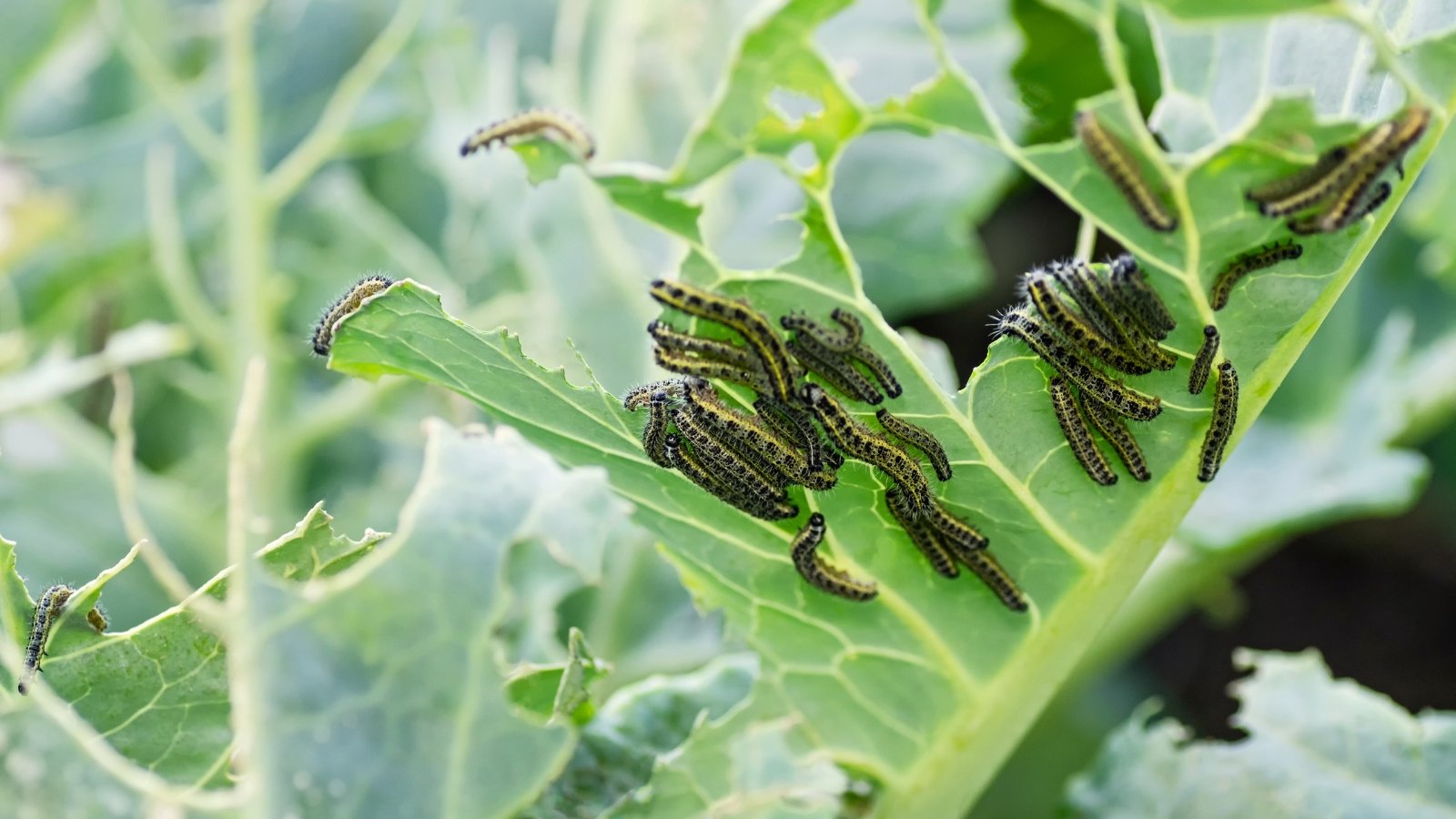

It’s greater to proactively plan than to react. Reactionary pest administration means prepared until pest infestations get out of hand, then making an attempt to handle them with harsh sprays and chemical compounds. This knee-jerk response solely considers short-term outcomes, like killing tomato hornworms, with out allowing for the long-term repercussions. Reactive pest administration assumes that the yard is a closed-loop system like a machine manufacturing unit. Nevertheless nature does not work that technique.
In distinction, proactive pest administration entails making a plan to forestall pest points. Your yard is an intricate ecosystem very like a rainforest. Aggressively attacking a problem throughout the rainforest might sound to resolve points throughout the short-term, nevertheless it absolutely lastly does further damage than good.
Many gardeners suppose that pests appear out of nowhere. Usually that’s the case. Nevertheless as a rule, we by likelihood create circumstances for pests to thrive.
As an illustration, broad-spectrum pesticides kill off all bugs, along with pests and their predators. The pests are sooner to return and proliferate because of predatory bugs take longer to get nicely from chemical eradication. That’s very similar to killing off the entire coyotes and mountain lions in an area, leaving the rabbits to run rampant with none predators to take care of them under administration.
What To Do In its place
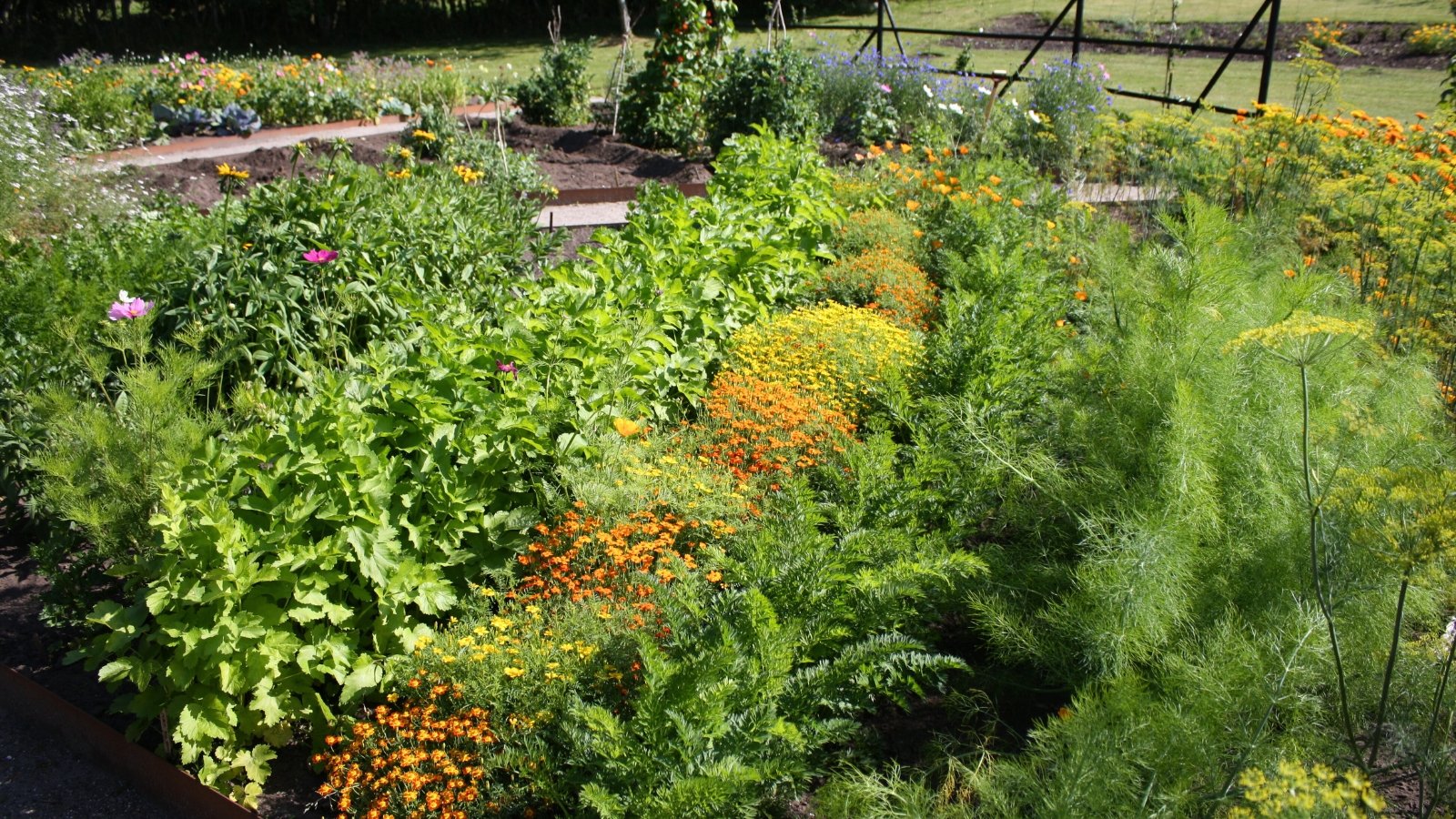

Like most points in life, pest outbreaks are preventable. Planning and prevention are considerably higher than emergency responses! We will not administration the whole thing that happens, nonetheless we now have an abundance of devices at our disposal to increase the overall resilience of the yard ecosystem.
Collectively, these devices are referred to as Constructed-in Pest Administration. They embrace:
- Frequent monitoring for pests
- Using pest traps
- Attracting useful predatory bugs
- Enhancing biocontrol (natural administration) methods
- Planting insectaries
- Diversifying crops
- Creating ecological “checks and balances”
- Placing in bodily obstacles (like row cowl or netting)
Reactive (emergency) administration usually comprises just one instrument—SPRAY EVERYTHING! Proactive administration is type of a complete toolbox of prevention. It is further peaceful, non-toxic, ecological, and sustainable. It may presumably moreover allow you to assemble up yard resilience so pest points grow to be a lot much less intense and fewer frequent.
Ultimately, avoiding the reactionary mistake is all a couple of mindset shift. In its place of contemplating, How can I destroy these bugs correct now? It helps to suppose, How can I forestall pests from the very beginning of the season and assemble long-lasting controls into my gardening approach?
Skilled Tip: Start your preventative approach by interplanting flowering vegetation to attract “good man” bugs. A number of of our favorite species for pest administration embrace:
- White alyssum
- Yarrow
- Flowering dill
- Queen Anne’s lace
- Flowering thyme
- Marigolds
- Mint
- Chrysanthemums
Mistake: Leaving Infested Crops
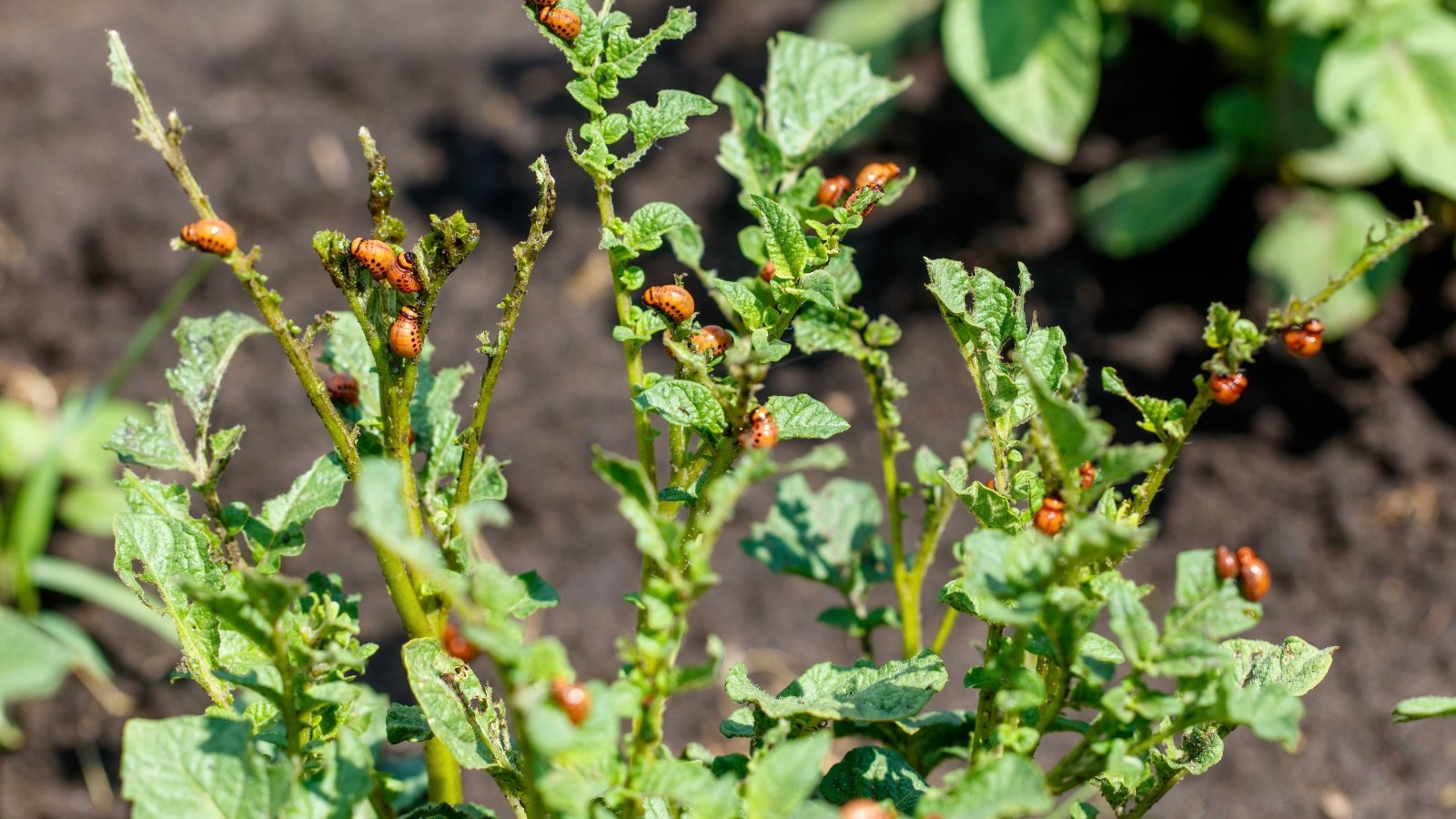

People who spend in all probability essentially the most time of their yard often have in all probability essentially the most success. Why? Because of they’re paying shut consideration to their vegetation! Within the occasion you solely go to your yard as quickly as per week, chances are high you will not uncover when pests are starting to get uncontrolled. Within the occasion you wait too prolonged, infested vegetation can grow to be breeding meccas for bugs to multiply and unfold.
It is a huge mistake to depart pest-covered vegetation in your yard. As quickly as a plant is infested to the aim of no return (ie. you may’t harvest its leaves or fruits), you have to pull it ASAP. Leaving bug-laden crops in your beds for prolonged durations of time solely makes pest administration more durable.
What To Do In its place
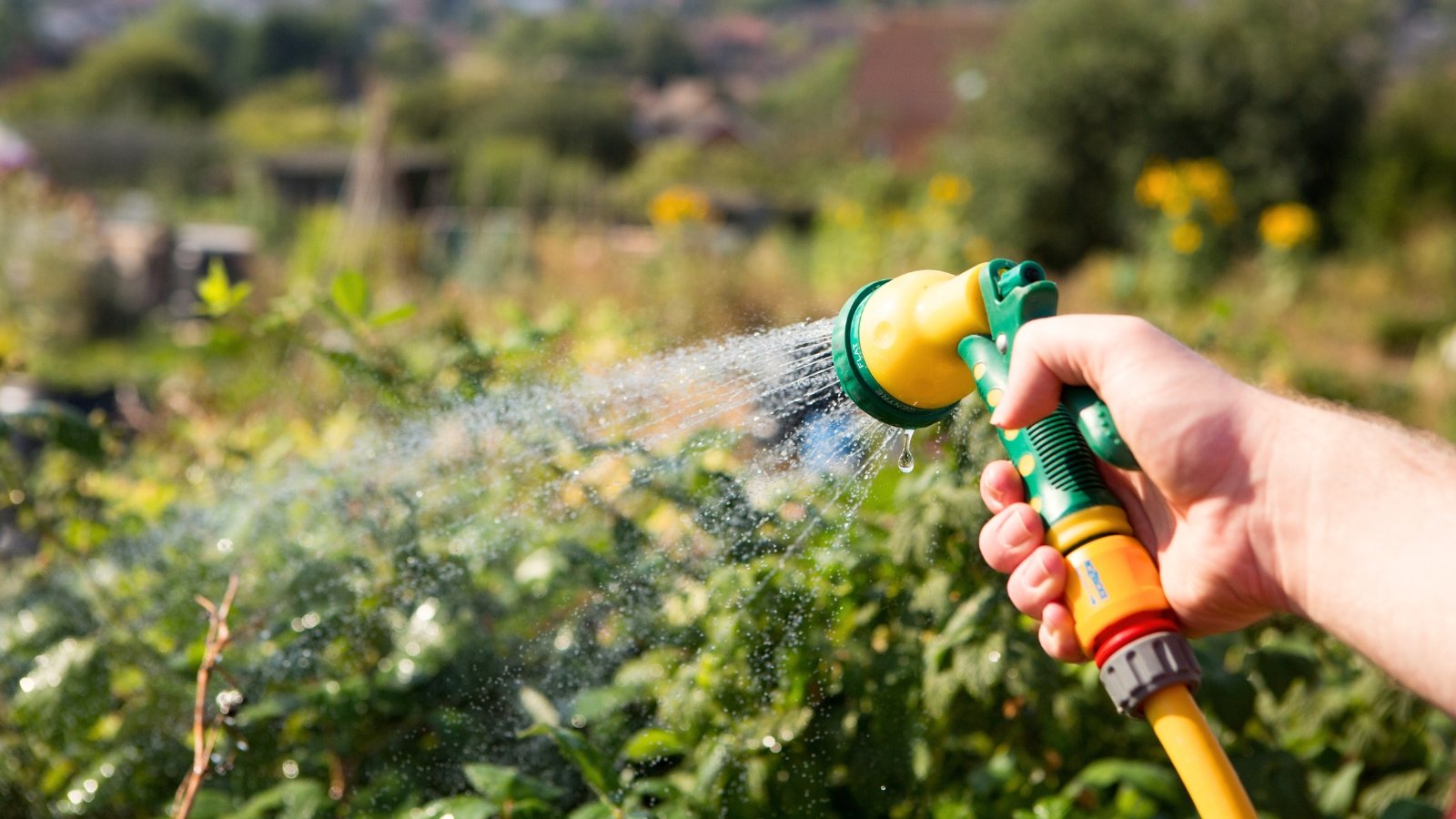

All built-in pest administration (IPM) strategies utilized by expert growers embrace certain thresholds for pest hurt. As an illustration, an pure farmer who grows greens for high-end farmer’s markets almost certainly has a extremely low threshold for hurt. Prospects are unlikely to purchase hole-filled kale or tomatoes with chunks bitten out of them.
In distinction, a home gardener is probably eager to tolerate further hurt, counting on the crop. As an illustration, you don’t need picture-perfect sauce tomatoes while you plan to can them. You might also be OK with a few holes in your potato or radish leaves. Nonetheless, you probably don’t want to eat Brussels sprouts filled with aphids or strawberries lined in slug slime.
Setting a psychological threshold for pest hurt can also assist create wise expectations. Additional importantly, it permits you to perceive when it’s time to fold! As quickly as a plant turns into too infested to be salvaged, it is worthwhile to take quick movement to remove it! Reduce down the infested plant and put it throughout the trash or panorama waste bin to stop the unfold of bugs to the rest of your crops.
Do not go away pest-filled vegetation throughout the panorama. Throughout the early phases of an infestation, you can spray the vegetation with an pure spray or a heavy blast of water to try to kill the pests. However when the plant is just not salvageable, take away it ASAP!
Mistake: Spraying Broad-Spectrum Pesticides
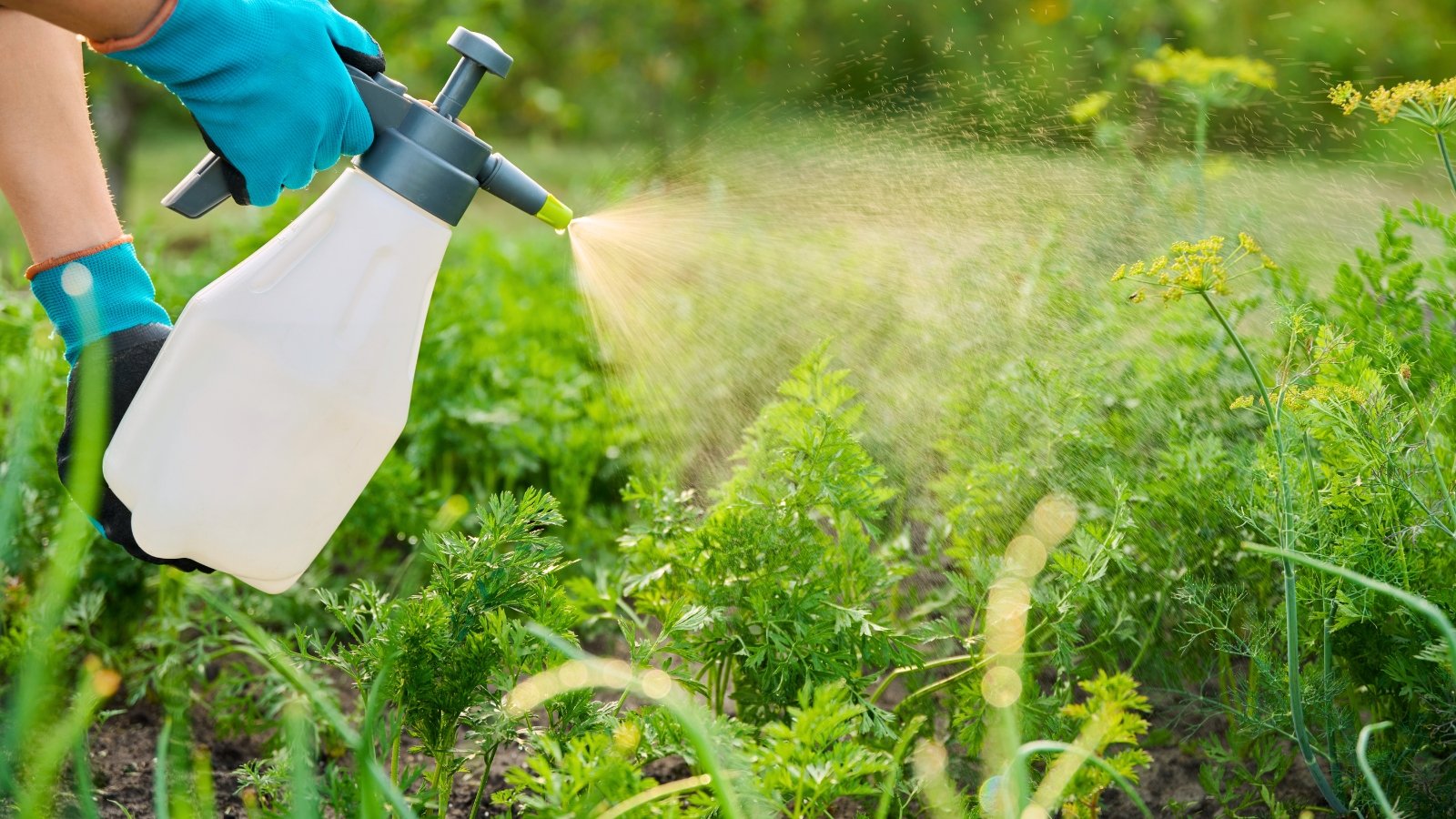

Broad-spectrum pesticides are designed to kill the whole thing. The label “broad-spectrum” really means “environment friendly in opposition to a giant variety of organisms.” These merchandise are extraordinarily harmful. Reverse to plain notion, broad-spectrum pesticides really create further pest points! You positively should avoid this error in case you want to stop combating so many pests.
Every pest in your yard has pure predators. Insect pests are usually on the bottom of the meals chain—they eat our vegetation, and one factor else eats them. Predators like ladybugs, hoverflies, lacewings, spiders, and parasitic wasps are fully necessary for sustainable pest administration. Sadly, every time you spray a broad-spectrum insecticide, you is perhaps moreover killing your predator allies!
Insect Resistance
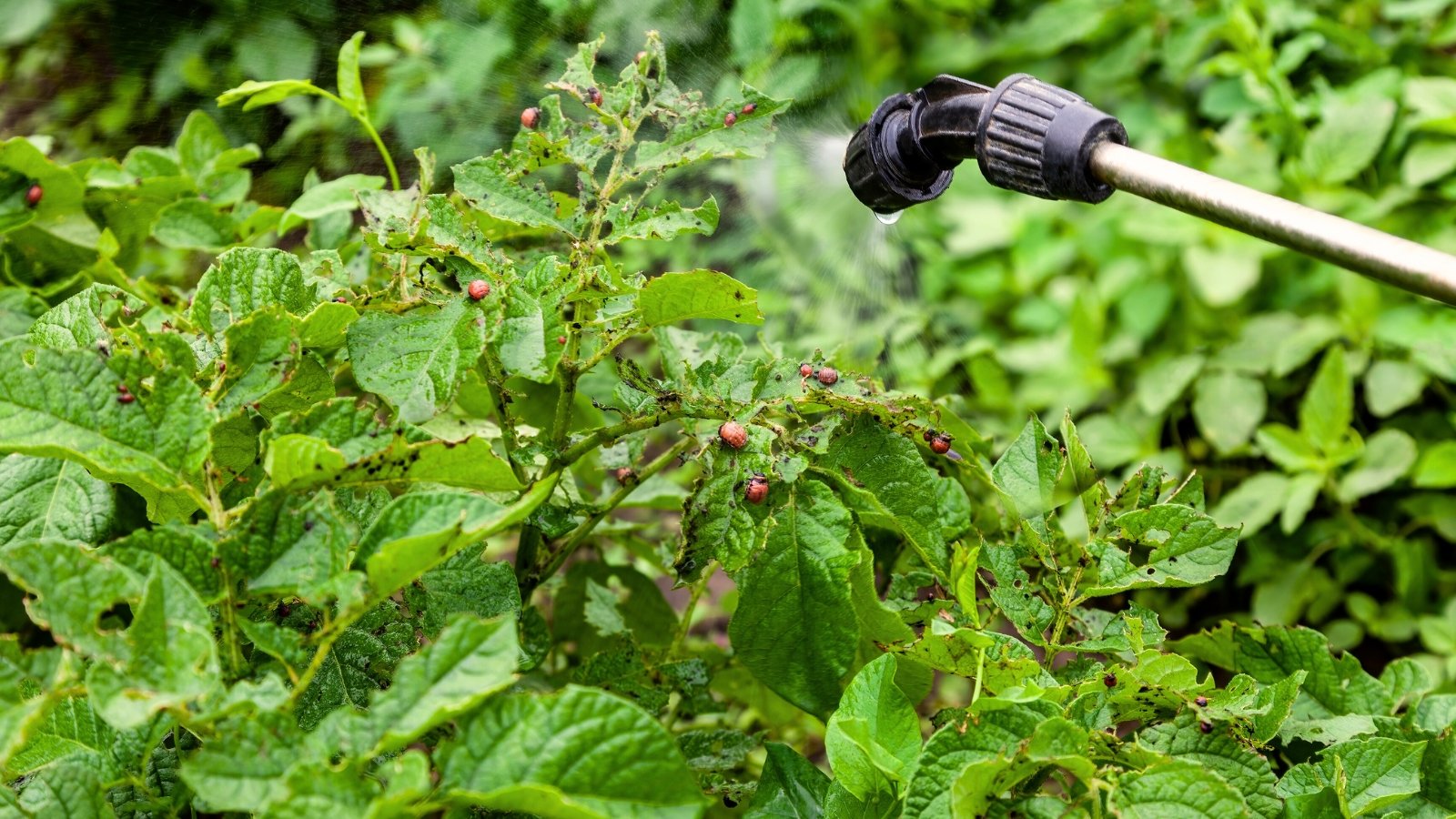

As quickly because the predators are gone, the pests come once more with way more vengeance. Like rabbits in suburbia, there aren’t any predators left to eat them! Within the occasion you spray as soon as extra, chances are high you will briefly knock once more the pest inhabitants as quickly as further, solely to hunt out that it turns into stronger.
Frequent pesticide capabilities really create stronger pests. This phenomenon referred to as “insect resistance.” Because of pests reproduce so rapidly, they may quickly grow to be proof in opposition to certain chemical compounds. There are pesticide-resistant mosquitoes, aphids, potato beetles, moths, and even residence flies.
Repeated capabilities of chemical compounds set off the pests to avoid the toxin or evolve mechanisms to metabolize the chemical, lastly making the pesticide ineffective. In several phrases, you can keep spraying, nonetheless they grow to be immune. Insecticide resistance is a severe world agricultural concern that ends in the utilization of an increasing number of harsh chemical compounds. You presumably can avoid it altogether by merely ditching synthetic pesticides.
Totally different Important Errors
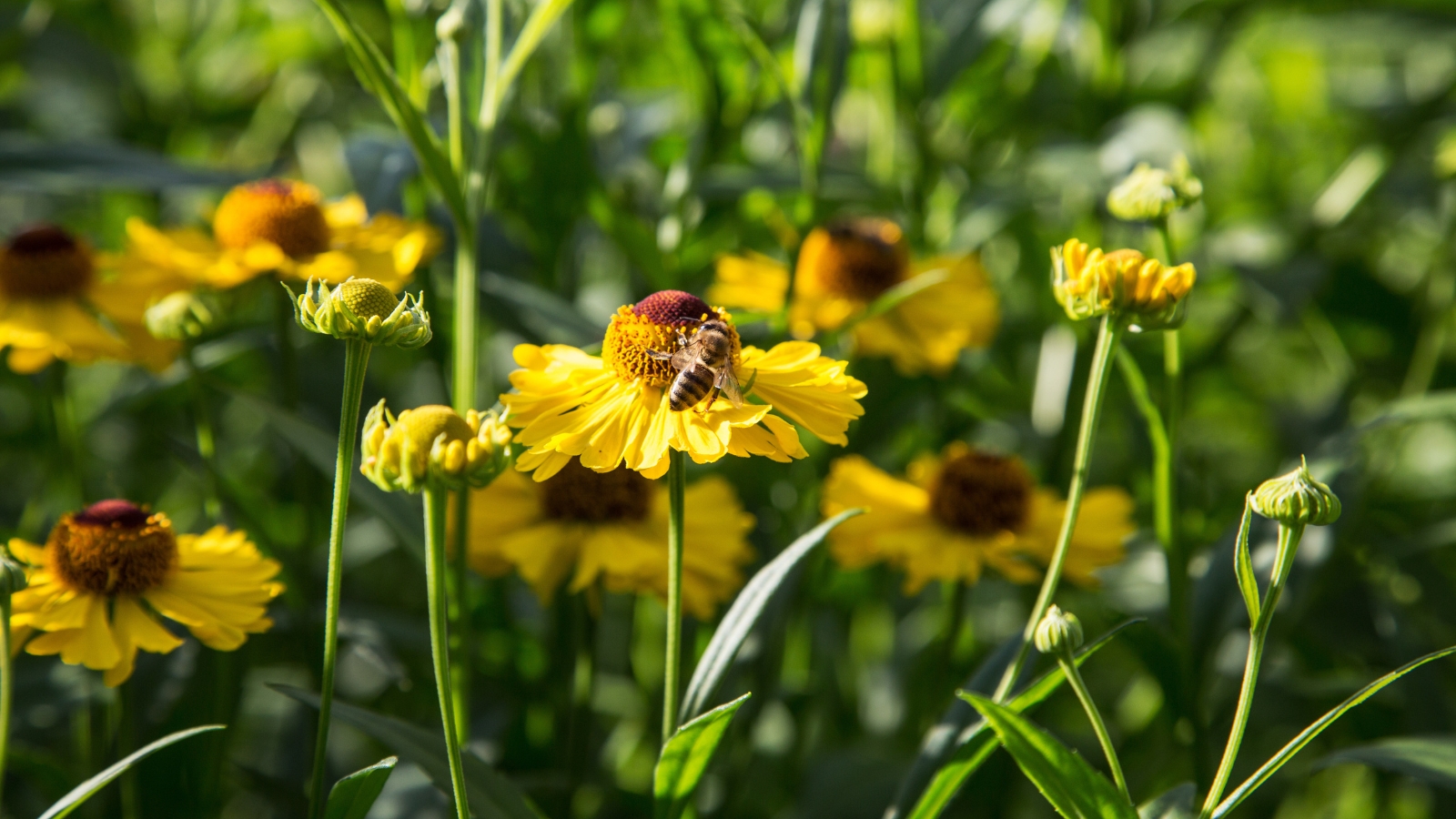

Evaluation reveals that pesticides often are usually overused or misused by homeowners. Improper utility, storage, and safety measures (which we’ll uncover beneath) are principal risks to your family members. It is common information that insecticides are unhealthy, nonetheless most gardeners don’t discover how these chemical compounds can really make pest factors worse.
Totally different points with pesticides are far too fairly a couple of to elucidate on this text, nonetheless you is perhaps almost certainly already aware of plenty of them. Together with killing insect predators, a very powerful factors with pesticides embrace:
- Killing pollinators like bees and butterflies
- Contaminating soil and water
- Harming aquatic organisms
- Toxic to non-target vegetation
- Pesticide resistance
- Harmful to domesticated animals and wildlife
- Very important scientifically-proven damage to human nicely being, along with short-term publicity and long-term opposed outcomes like most cancers and neurological sicknesses
What To Do In its place
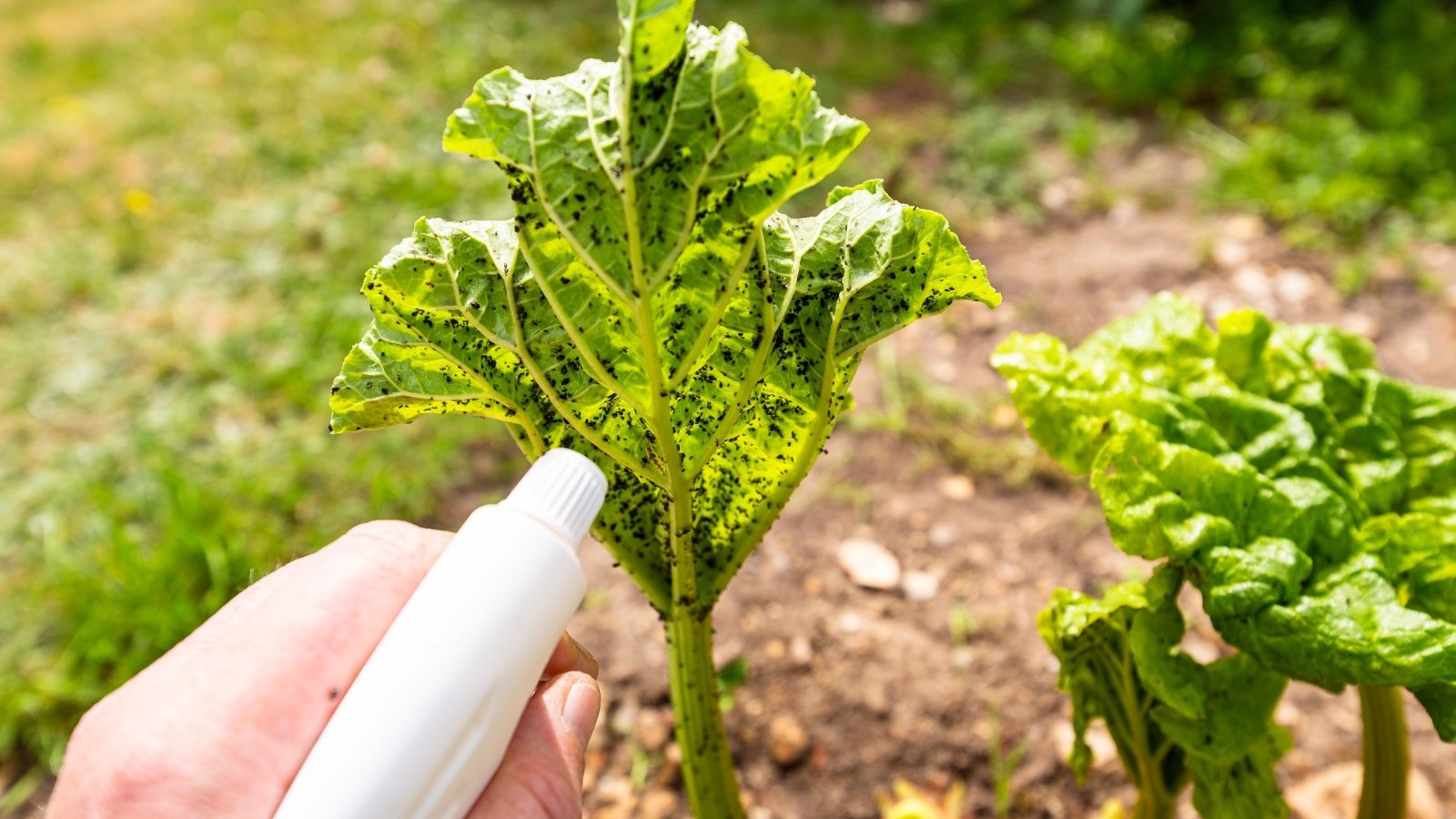

In the event you want to stop using chemical sprays, what choices are you able to make the most of to knock out a large pest infestation? Fortunately, there are quite a few pure and non-toxic selections that gained’t damage you or useful critters. As you is perhaps establishing a preventative routine, you must nonetheless need to use certain sprays to cut once more on pest populations.
The popular pure spray is neem oil. This organic-approved pesticide is unquestionably constructed from the seeds and fruit of a tropical tree referred to as the neem tree. Neem bushes naturally create pest-deterrent compounds (notably, azadirachtin). These compounds grow to be concentrated when pressed into an oil.
Neem oil is the very best for controlling:
- Aphids
- Whiteflies
- Spider mites
- Fleas
- Japanese beetles
- Leafhoppers
- Thrips
As a bonus, neem oil helps forestall and kill fungal pathogens to gradual the unfold of sicknesses. Moreover, neem is biodegradable and does not damage the soil. It may presumably even help earthworms! When used appropriately, neem does not damage useful bugs as quickly because it dries. As always, you must undoubtedly rigorously be taught bundle deal instructions and dilute the oil sooner than making use of.
Horticultural oil is one different compound that will knock out aphids, flea beetles, whiteflies, spider mites, and the larvae of many pests. Oils work by smothering the bugs and stopping them from respiration or metabolizing. Due to this they’ve to right away contact the pest to be environment friendly.
A fogger or spray bottle are good selections to ensure even distribution of the product. Spray these pure compounds instantly over a pest-infested leaf, taking care to look at specific bundle deal instructions.
Mistake: Rising a Monoculture


Monoculture means planting a ton of the exact same crop in a single concentrated area. That’s most common on industrial farms the place 1000’s of acres of corn or soy cowl the panorama. The scarcity of biodiversity makes it additional easy for pests to hunt out their host vegetation. It moreover makes it less complicated for specialist pests to unfold.
Specialist bugs are these with a important purpose plant or plant family. As an illustration, tomato hornworms primarily assault tomatoes, nonetheless they may moreover assault nightshade family cousins like peppers and tobacco. Within the occasion you develop an unlimited clump of tomatoes and their kinfolk in a concentrated area, it is less complicated for the five-spotted hawk moth (the grownup stage of the tomato hornworm) to hunt out vegetation to place its eggs.
Monoculture moreover happens with specific sorts of vegetation. As an illustration, while you solely develop one sort of kale, there’s a lot much less selection throughout the plot. This allows pests to unfold sooner. Aphids rapidly leap between vegetation and conceal throughout the curly leaves of curly kale varieties. A mixed kale mattress of ‘Crimson Russian,’ ‘Siberian,’ and ‘Nero Toscana Lacinato’ is far much less vulnerable to be infested because of there’s a wide range of genetics and plant defenses.
What To Do In its place
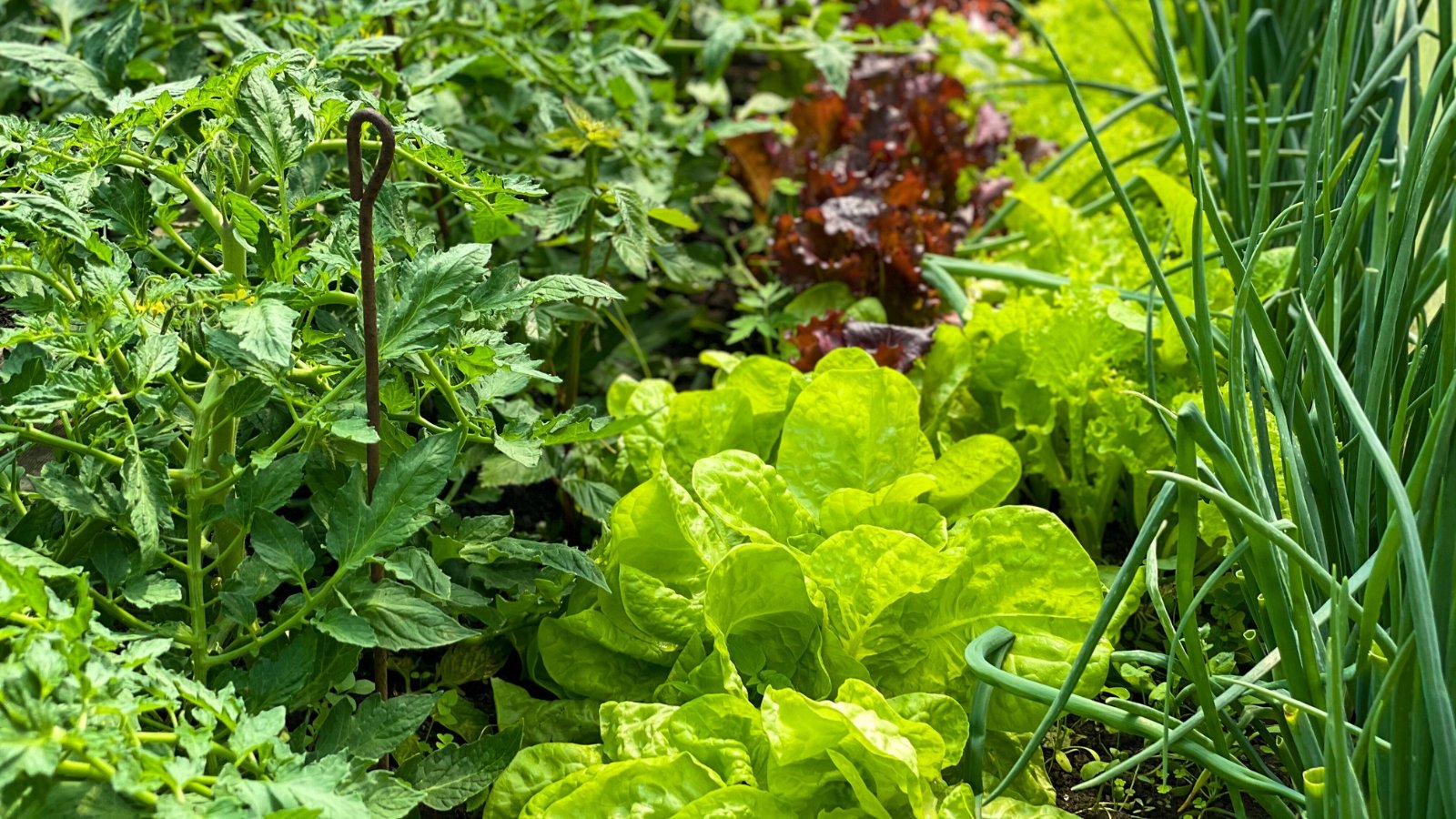

Diversified plantings are confirmed to be further resilient in opposition to pests and sicknesses. Take into consideration that you are a Colorado potato beetle flying over a yard. If there’s a big area of dozens of potato vegetation, it’ll seemingly be very easy to odor them, land on them, and start consuming. In distinction, the beetles may need further downside discovering their host in a diversified yard interspersed with a variety of greens and flowers.
To diversify, start practising companion planting or interplanting. This observe entails strategically planting many different sorts of vegetation within the an identical beds. Previous pest administration, it moreover has many benefits, like saving home, enhancing pollination, and bettering whole yields.
Don’t concern; you can nonetheless keep vegetation collectively to make harvesting easy. As an illustration, chances are high you will develop a row of lettuce subsequent to a row of tomatoes. The dappled shade of the tomatoes can defend the lettuce from bolting, and the lettuce gained’t compete with the tomatoes. Every crops will nonetheless be easy to successfully harvest, nonetheless they will be a lot much less weak to pest infestations because of the number of smells and genetics deters bugs.
Greater however, add in some marigolds or white alyssum to boost pure predatory pest administration!
Mistake: Relying Solely on Sprays
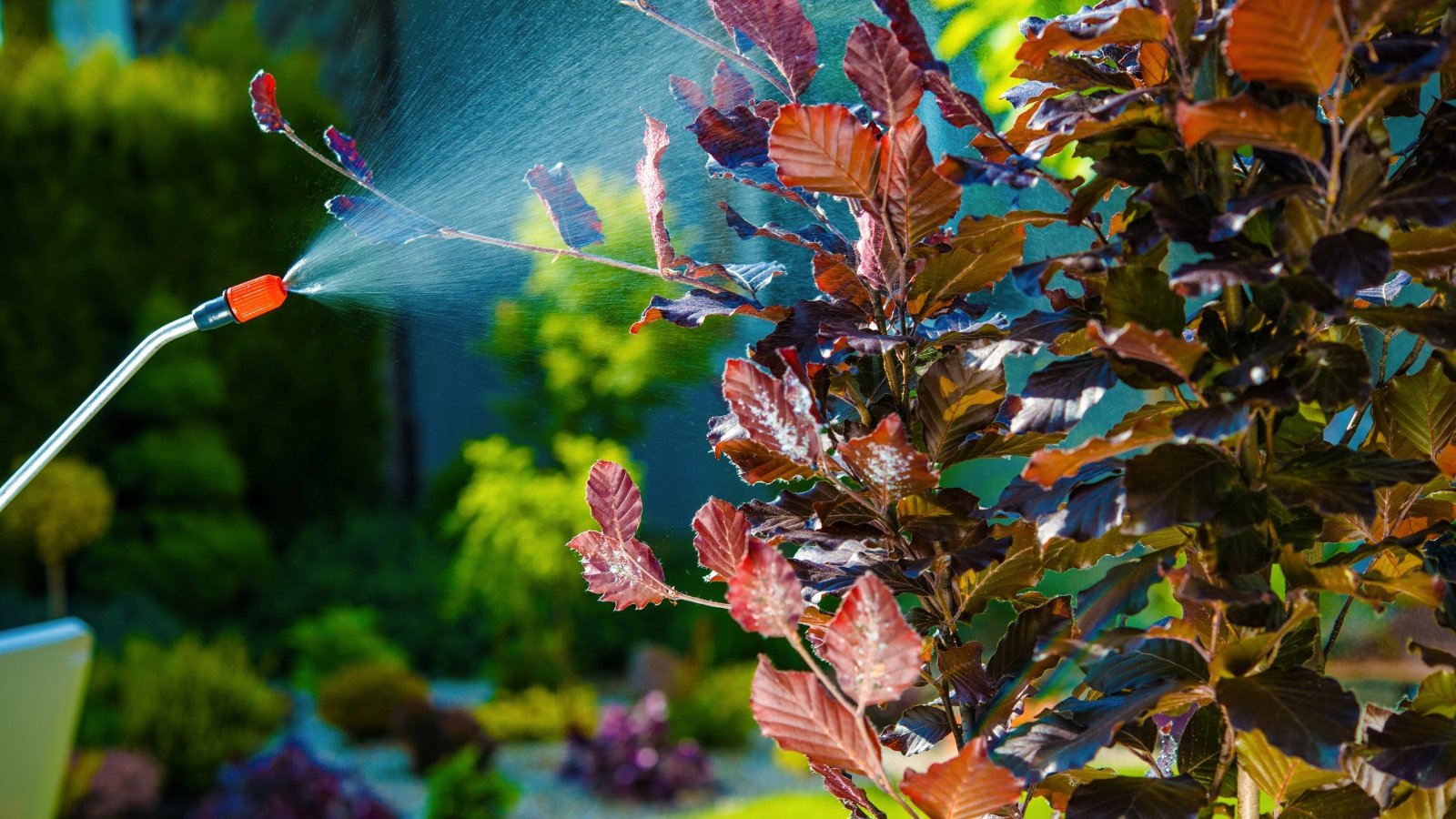

Pesticides—even pure sprays—mustn’t the one reply to your pest woes. It is a big mistake to rely solely on these merchandise to knock out bugs. As we talked about above, bugs can merely grow to be proof in opposition to sprays that are utilized time and again. This even comprises pure sprays!
A numerous toolbox is important to staying on prime of pest populations! That’s the one attainable method for folks to outsmart pests. The bugs will uncover any technique they may to eat their favorite meals. Nevertheless gardeners can use clever methods to suppress, deter, and exclude the bugs from their host vegetation.
What To Do In its place
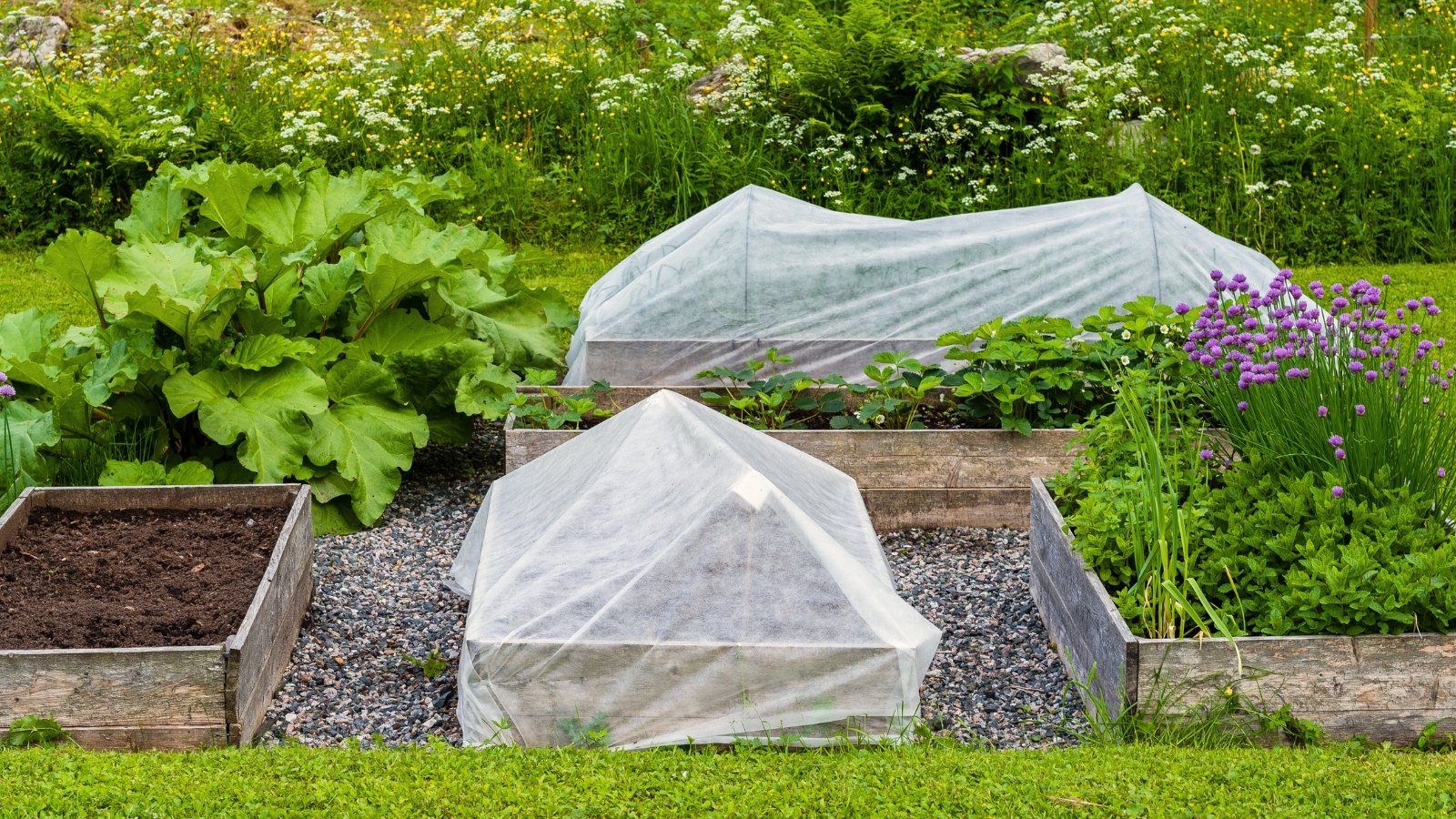

Bodily obstacles are extraordinarily environment friendly non-chemical strategy of pest administration. Row fabric (aka row cowl) is an agricultural textile that retains pests out whereas enhancing crop growth. Water and daylight can nonetheless penetrate by the woven textile. Greater however, the row cowl helps keep youthful seedlings cozy and warmth by spring nights. It’s a important instrument utilized by pure farmers however underutilized in dwelling gardens.
Row cowl is my favorite strategy of pest prevention for youthful brassicas like turnips, arugula, and radishes. After instantly seeding these crops, immediately put a row cowl over them. The seeds will germinate quickly and revenue from further even moisture under the fabric.
You presumably can “float” row fabric instantly over a crop. This means it rests on prime of the leaves. Alternatively, you can assemble low tunnel hoops with wire, metal, or PVC. The fabric should be secured with straightforward (not sharp) objects like sandbags, rocks, or clamps. It is attainable you will should take away row fabric after certain crops like zucchini or tomatoes get larger and start flowering. Pollinators cannot entry the blossoms beneath row cowl.
Insect netting is one different reliable alternative. Some top quality nets keep even the smallest thrips and flying bugs out of your beds.
Perceive that bodily obstacles solely work on flying pests. Deterrents for soil-dwelling pests embrace:
Dry powder sprinkled spherical vegetation to dehydrate slugs and snails.
Pure producers use pellets to bait and kill slugs.
One different commonplace slug baiting methodology makes use of a tupperware filled with low-cost beer and buried at ground diploma so the slugs fall in and drown.
Interplanting with marigolds suppresses root-knot nematodes of their second season.
Plant protectors product of cardboard or plastic can defend the underside of youthful vegetation from cutworms.
Mistake: Making use of Sprays Midday
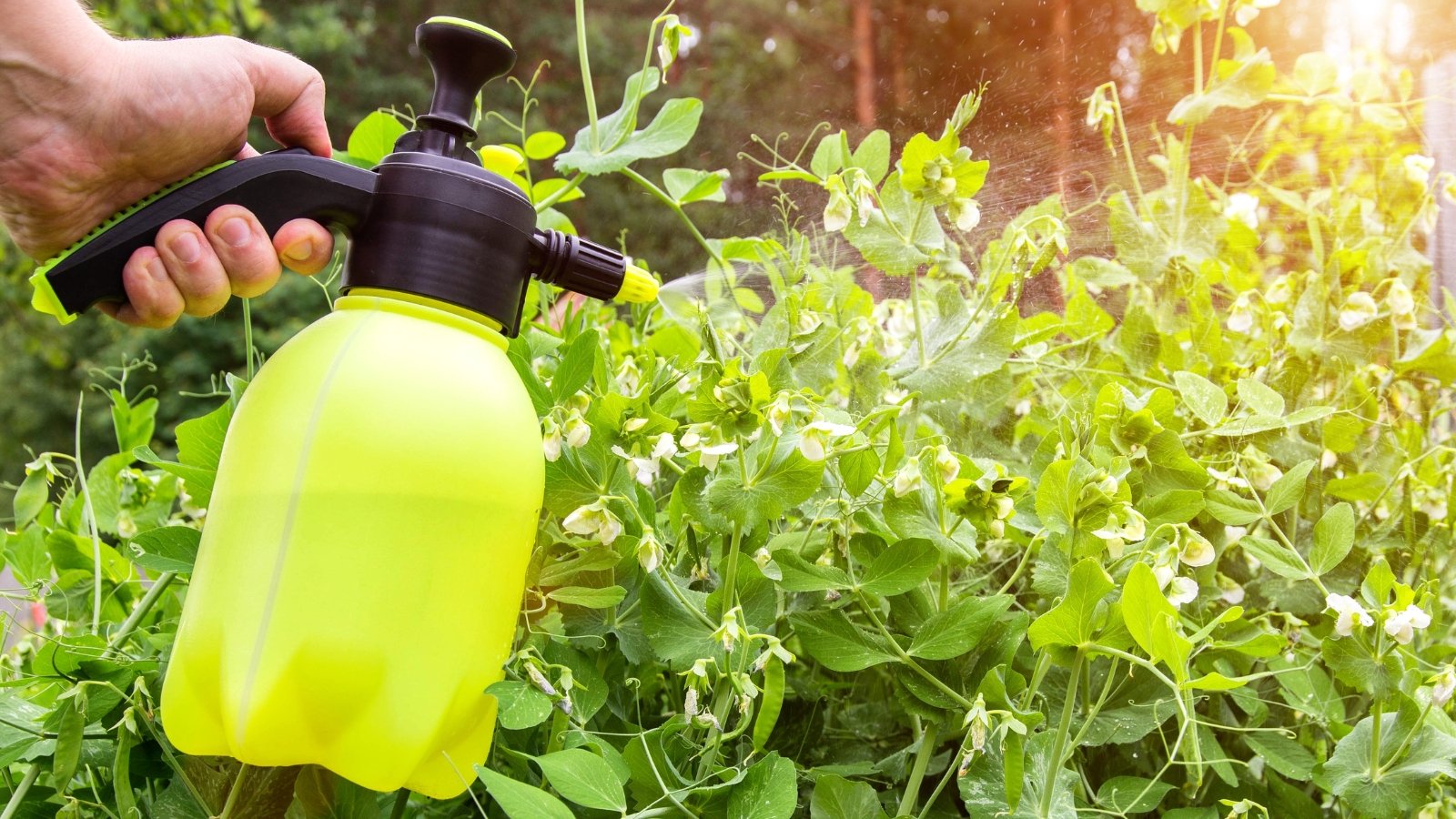

In the event you’ll use pesticides or pure sprays, it is crucial that you just apply them on the right time. Many gardeners mistakenly spray chemical compounds in the midst of the day. It will scorch plant leaves and expose needed useful bugs to the compounds.
Bees, butterflies, and totally different pollinators are most energetic when the photo voltaic is out. Within the occasion you apply a pesticide throughout the afternoon, it is further inclined to harm the “good man” bugs that you just’re making an attempt to protect. Many chemical compounds moreover grow to be a lot much less environment friendly in scorching, sunny local weather.
What To Do In its place
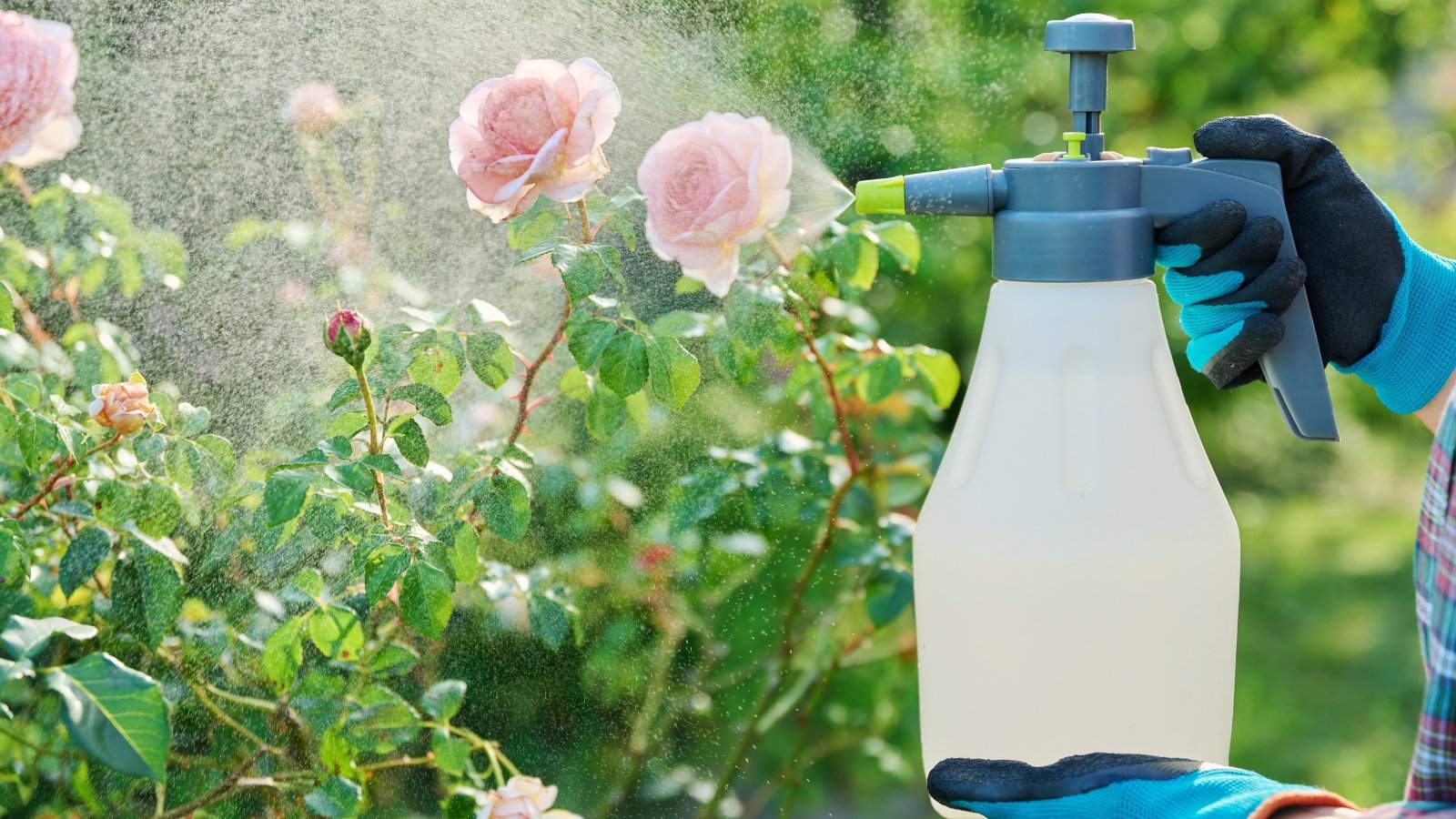

Always observe bundle deal utility instructions. Many merchandise must be utilized throughout the cooler elements of the day, just like early morning or late throughout the night time. It will seemingly be helpful for specializing in nocturnal pests whereas avoiding damage to the precious pollinators.
Mistake: Making use of Pest Administration With out Defending Instruments
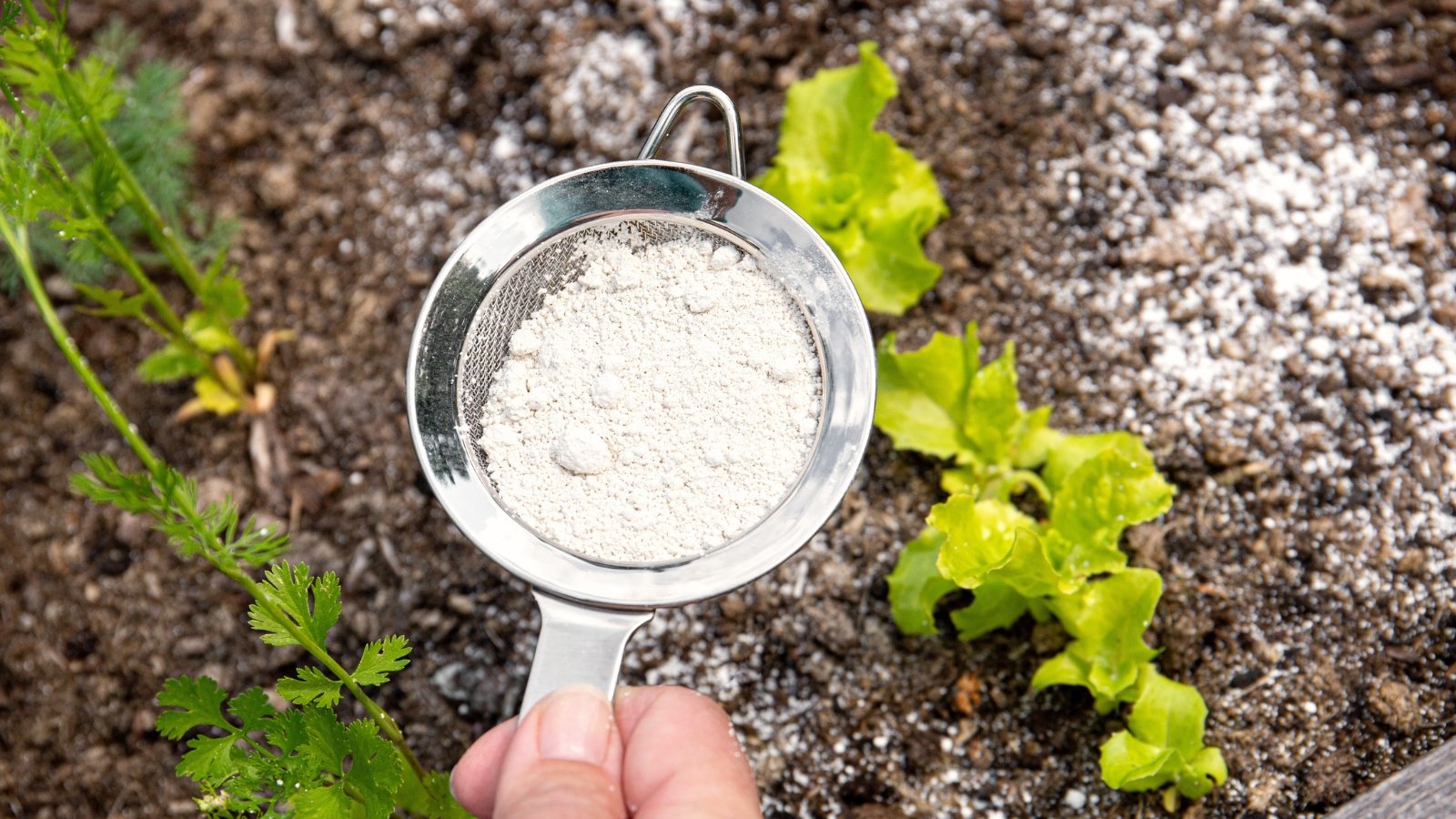

One thing that will kill bugs can clearly impression human nicely being. We’re all part of nature! Not all pesticides are as carcinogenic and toxic as infamous chemical compounds like DDT or Agent Orange. Nevertheless it’s vitally needed to protect your self and your family members while you resolve to make use of any sort of pest administration product to your yard.
House owners are in all probability essentially the most weak to pesticide poisoning because of they don’t acquire the teaching {{of professional}} applicators and farmers. Moreover, evaluation reveals that many homeowners do not fully be taught labels and tend to utilize merchandise in extra concentrated varieties with out dilution. We always want our Epic family to be cautious when making use of one thing to the yard!
Even all-natural merchandise pose minor nicely being risks. As an illustration, diatomaceous earth is a benign, non-toxic supplies product of historic fossilized algae. Nonetheless, the powdered kind of diatomaceous earth can nonetheless be harmful to inhale. You don’t want to dump a bunch of this powder in your vegetation and by likelihood inhale the microscopically sharp particles.
What To Do In its place
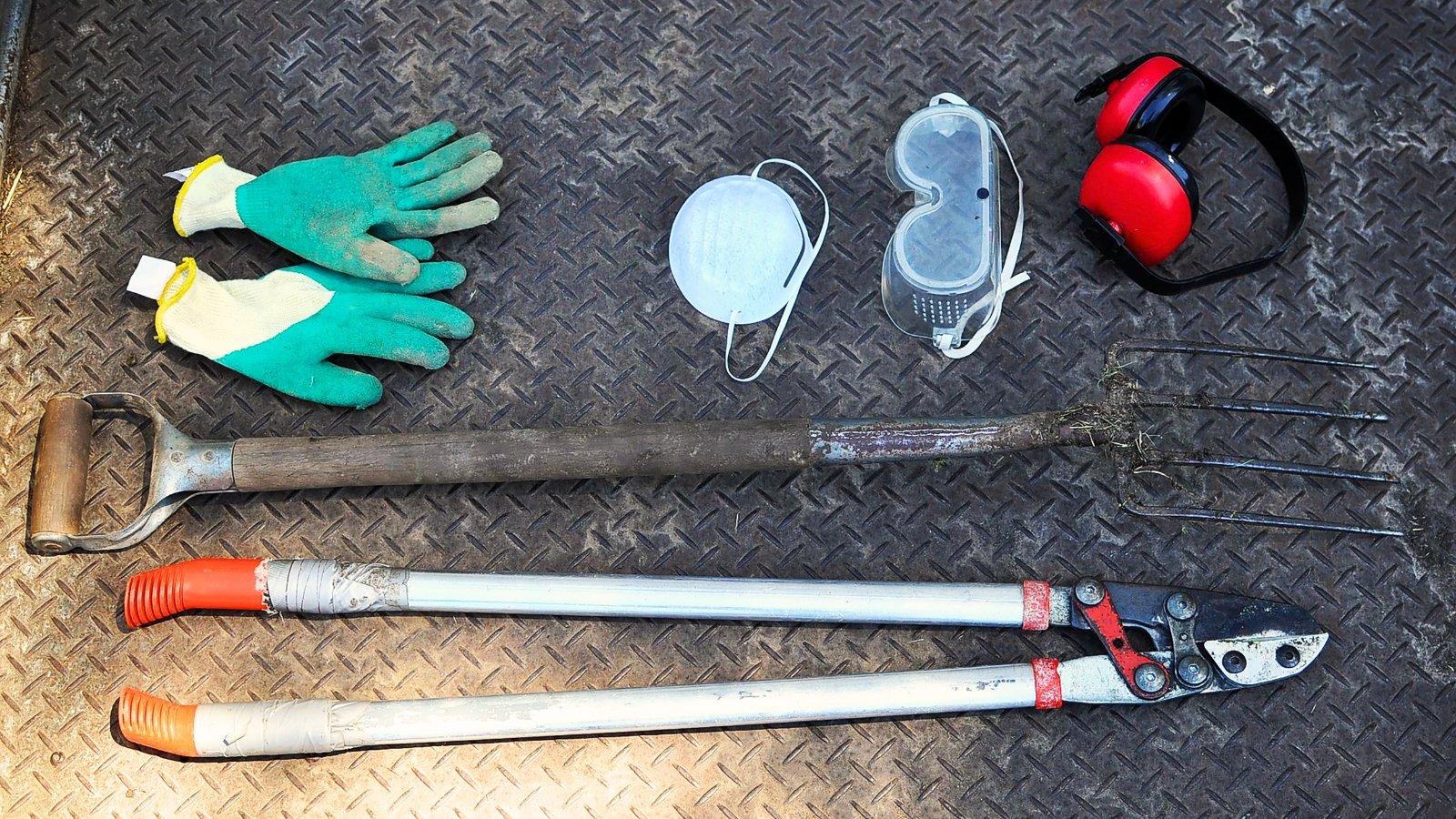

Always have PPE (personal defending gear) available. A typical N95 face masks and gloves are helpful, and goggles or prolonged sleeves are important for some merchandise. Try and avoid making use of chemical compounds each time potential. Make certain you keep youngsters and pets out of the realm for 24-48+ hours after making use of one thing with harmful parts.
It is also terribly needed to scrub your crops sooner than consuming. Within the occasion you apply Bt or neem oil to your kale leaves, it might be finest to wash them sooner than consuming. These merchandise mustn’t considered toxic to folks in small parts, nonetheless you proceed to don’t want to eat them. Neem oil moreover smells pretty funky.
I will reiterate: Pure merchandise mustn’t virtually as harmful as synthetic chemical pesticides. Nonetheless, they may nonetheless pose risks when used or utilized improperly. Always be taught the label and take precautions. Within the occasion you don’t want to use scary merchandise, go for natural controls and handbook strategies! Gardening must be gratifying, not dangerous!
Closing Concepts
Even in all probability essentially the most expert gardeners usually make pest administration errors. The aim of pure rising is to maximise ecological pest administration so we don’t should make use of synthetic chemical compounds. This begins with preventative measures like crop planning, diversification, pest monitoring, plant eradicating, and bodily obstacles. You may too plant flowers like white alyssum and marigolds to attract useful predatory bugs and deter “unhealthy man” pests.
It is necessary to avoid broad-spectrum pesticides and chemical compounds that upset the pure ecology of your yard. These sprays could trigger further damage than good.
Most importantly, always defend your family members’s nicely being when using any kind of pest administration. Don’t forget that even pure merchandise have risks. Observe product instructions, dilute when important, and use defending gear when making use of pesticides.
[ad_2]


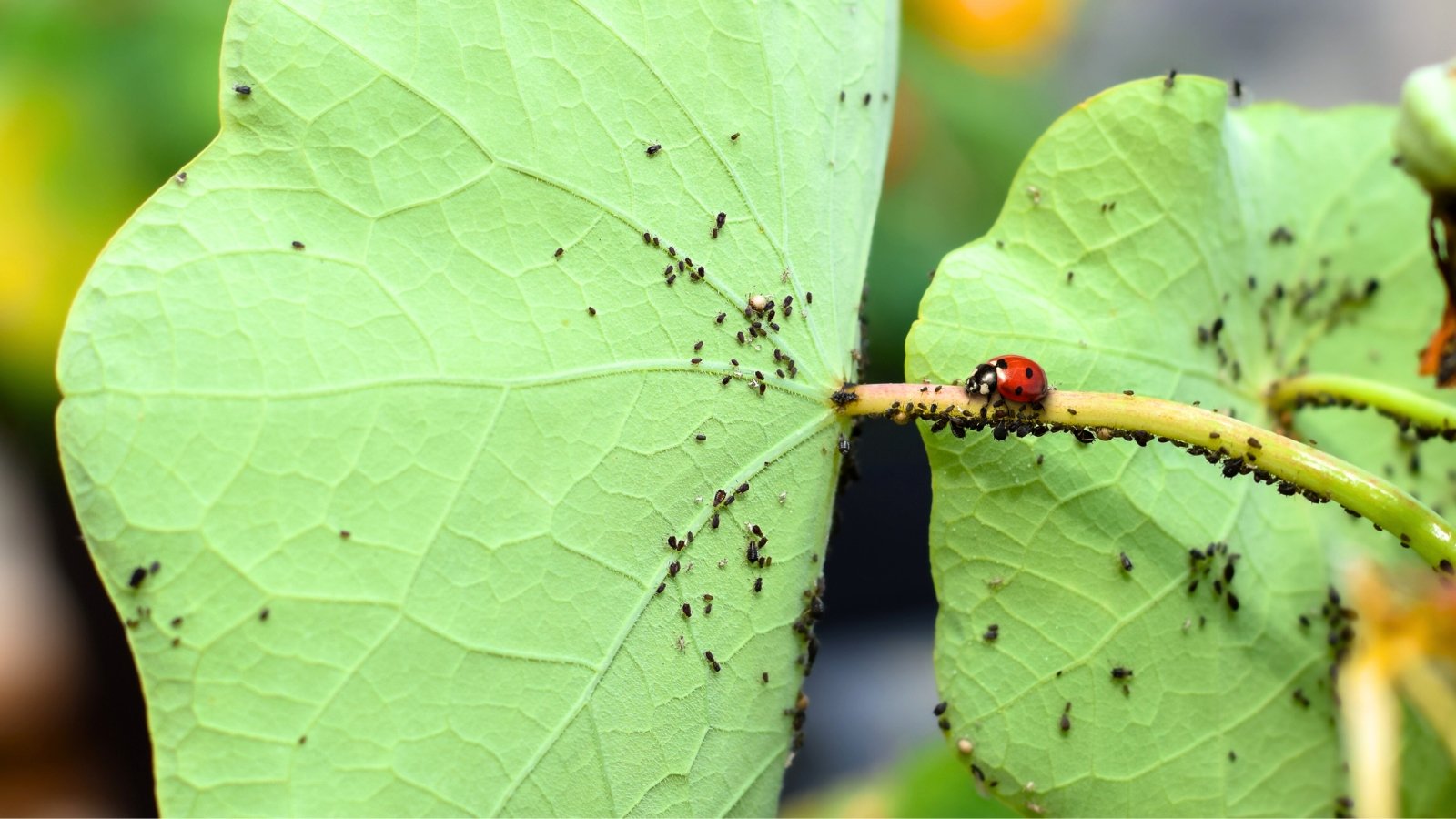
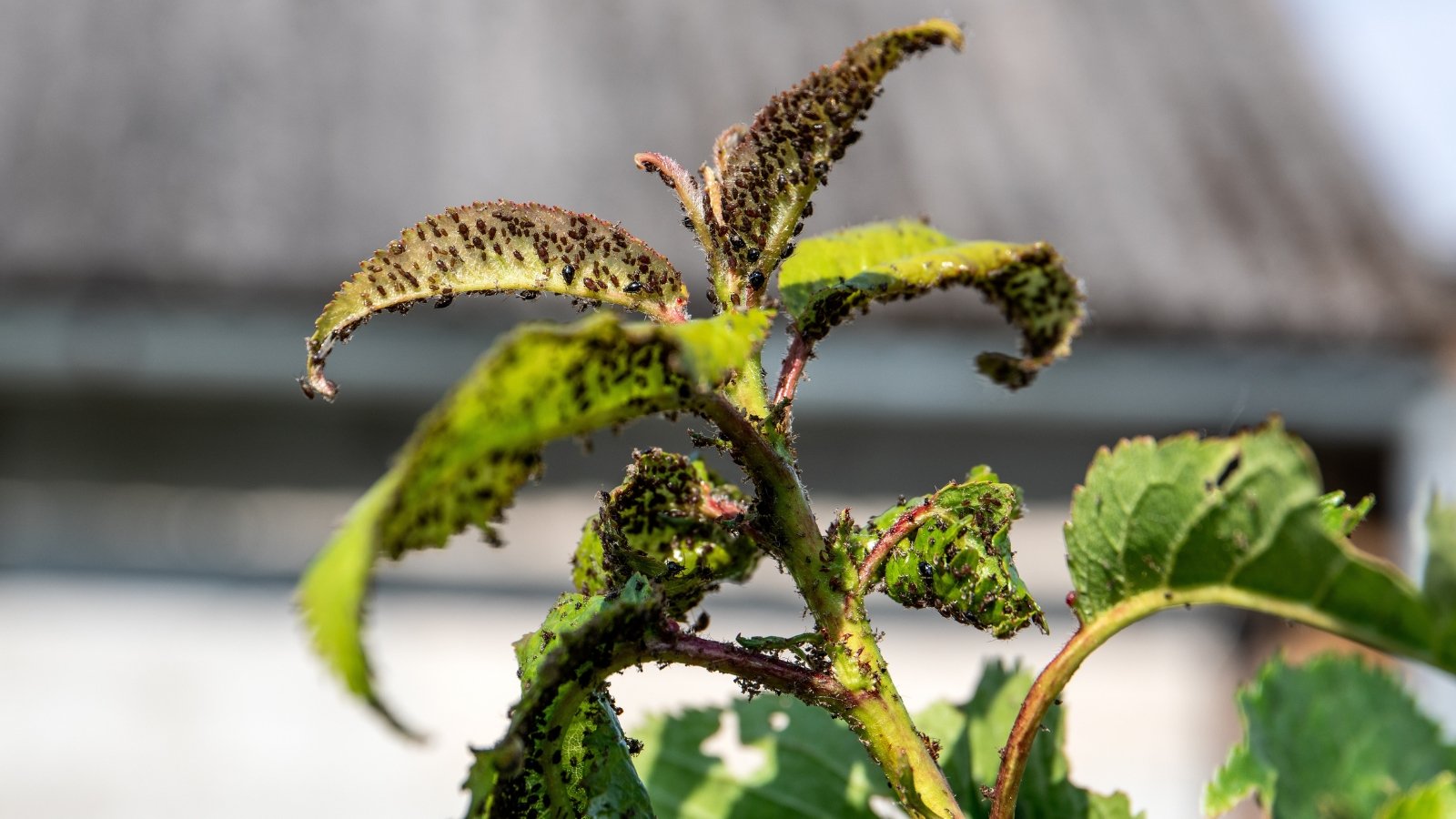
The advice on companion planting was quite interesting. I have often planted the same crops together, but now I see how diversifying might help reduce pest issues. It’s a practical approach that makes sense in an ecosystem.
I found the section on the dangers of broad-spectrum pesticides very enlightening. It’s a good reminder that we should focus on maintaining ecological balance in our gardens rather than resorting to harsh chemicals that can disrupt it.
This article highlights some common mistakes that many gardeners make when dealing with pests. The idea of monitoring plants regularly to catch infestations early is a simple yet effective strategy that anyone can implement easily.
This article provides useful insights into sustainable pest management. The emphasis on prevention over reactive strategies is particularly valuable for new gardeners. I appreciate the variety of methods suggested for keeping pests at bay without chemicals.
I appreciate the focus on integrated pest management techniques shared here. It’s helpful to know there are numerous non-toxic options available for managing pests, which can contribute to healthier gardening practices overall.